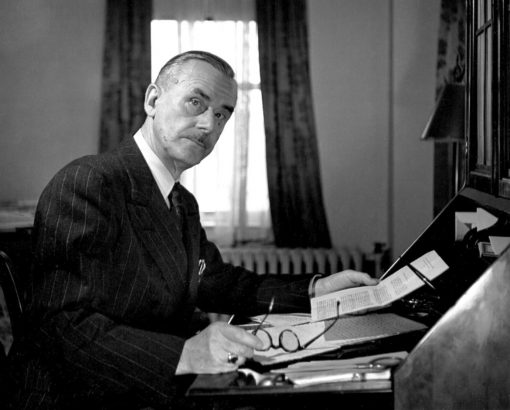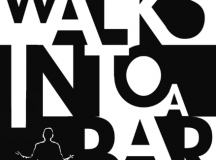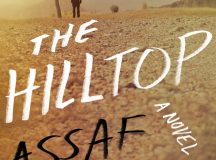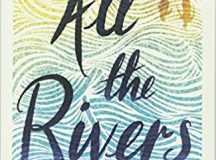In January 1934, the Bavarian State Ministry of the Interior revoked the novelist Thomas Mann’s German citizenship, in part, because of his membership in the ‘German Committee Pro Palestine’ (‘Deutsches Komitee Pro Palästina’) and his support for its main goal, to sponsor the settlement of Jews in Palestine. Shalom Goldman, Professor of Religion at Middlebury College, is an avid reader of both Thomas Mann and Colm Toibin, the author of The Magician, a new novel about Mann. Goldman explains his disappointment with the novel.
I have been reading and rereading Thomas Mann’s Joseph novels for over half a century. Like many others educated in the Yeshiva tradition, I delighted in Mann’s use of midrashim, the legends that supplement the spare narratives of the Bible. Mann accessed these legends through his own research, and through a network of European Jewish scholars he cultivated before he set to work on what would eventually be his four volume 1500-page magnum opus on Joseph – a quartet of books he dubbed his ‘pyramids.’
And I have been reading and admiring Colm Toibin’s novels – including The Master, his novel about Henry James – for over a decade. So it was with great anticipation that I looked forward to reading Toibin’s new novel about Thomas Mann, The Magician. Before its publication in September, I reread some of my favorite sections of the Joseph books, as well as all of The Magic Mountain, another Mann classic that has been a constant companion. I also looked again into a number of the excellent biographies of Mann that have appeared since his death in 1955, and it is these biographies that Toibin acknowledges in a note at the end of the novel, giving pride of place to Anthony Heilbut’s Thomas Mann: Eros and Literature, published in 1996.
Thomas Mann (1878-1955) was one of the great literary figures of the Twentieth Century. He wrote short stories, novels, and essays and was awarded the Nobel Prize in Literature in 1929.
Mann opposed the Nazis early on, left Germany when they rose to power, and used his considerable energies to oppose them.
I have to admit that my rereading of Mann was tied to professional concerns as well. If Toibin was going to help bring Mann back in to fashion, perhaps I could teach a summer seminar on the Joseph novels, or on The Magic Mountain. But now that I have read The Magician, I don’t think that it will bring new readers to Mann’s work. Rather, I fear it will discourage readers from making the effort. Why bother reading Thomas Mann if what Toibin considers the most important fact about him, that he was gay, can be easily assimilated from the novel’s gossipy narrative? And, in fact, one doesn’t even have to read Toibin’s novel to get that message. The book’s cover – a picture of a man in a Venetian gondola staring at Venice – now serves as a meme for Thomas Mann, Nobel Prize Winner.
Early in The Magician’s 550 pages there is a long chapter, set in 1911, devoted to the composition of Mann’s celebrated short story, Death in Venice. Reading that chapter whetted my appetite for what Toibin would have to say about the four Joseph novels. If, as Toibin, and Heilbut before him, suggested, Mann’s homoeroticism was the key to understanding Death in Venice, what would Toibin present as the key to understanding Mann’s heroic effort to write and complete the Joseph Novels? His wife Katia’s Jewish ancestry?, his deep and abiding interest in the Bible’s literary appeal? To my disappointment, I would not find out. There is only a brief reference to them in The Magician.
From the Mann biographies I was reminded that Mann wrote the four volumes of Joseph and His Brothers between 1926 and 1942, a tumultuous period in German history, and in Mann’s personal life. Mann embarked on writing the first volume, The Stories of Jacob in 1926, two years after he published The Magic Mountain, the novel that secured his status as a great European novelist. The first volume of the quartet, The Tales of Jacob, was published in German in 1933, the year the Nazis rose to power. Mann and his family, vocal opponents of the Nazis, left Germany and settled in Zurich, where he embarked on the second volume, Young Joseph. It was published in Vienna, the temporary home of Mann’s Berlin publishing house.
In 1938 Mann and his family found refuge in the United States – first at Princeton and then in California, where he and his wife Katia built a house at Pacific Palisades. Once settled in California, Mann set to work on the continuation of the Joseph story. This fourth volume, Joseph the Provider, was completed in 1942. Mann described it as having been composed ‘beneath the blue of the California sky – so like that of Egypt – and to it my narrative surely owes much of its serenity and cheerfulness.’
On its publication by Alfred A. Knopf in 1944, Joseph the Provider was chosen as a Book of the Month Club selection. Mann made a lot of money from the Club sales. The wide distribution of the Book of the Month Club edition meant that the three earlier Joseph novels also sold well in the American market. In 1948 an English translation of all four of the Joseph novels was published in an American edition under the title Joseph and His Brothers. Thus Mann spent sixteen years writing the Joseph novels, and it is these years that he described in a long essay written for 1948 publication of the complete American edition.
In contrast to the sixteen-year saga of the creation of the Joseph novels, the composition of Mann’s early short story Death in Venice extended over one year, from mid-1911 to mid-1912. But in Toibin’s novel it is Death in Venice, and not Joseph and his Brothers, that is the center of attention. In The Magician, a long chapter is devoted to the writing and reception of Death in Venice. In contrast, Toibin offers his readers one sentence about all four volumes of the Joseph novels. And in doing so, Toibin omits the story of Mann’s travels to Egypt and Palestine, voyages he considered the most important of his life.
In preparation for writing The Tales of Jacob, seeking inspiration and information, Mann embarked on a journey to the Middle East. In 1925, flush with the royalties from the publication of The Magic Mountain, he joined a Mediterranean cruise that focused on Egypt. He was fifty years old. Uncharacteristically, Mann took this voyage without his wife Katia, with whom he usually travelled.
In a letter to a friend, Mann wrote that in joining a Mediterranean cruise, he was more interested in Egypt than in other ports of call. ‘I shall catch sight of the desert, the Pyramids, the Sphinx. It may be helpful to certain plans, which I am keeping to myself, shadowy as they are.’ In Cairo, Mann visited the Egyptian Museum, where he was fascinated by the statues of Akhenaten. Neither this Egyptian journey nor the one that followed five years later, is mentioned in The Magician.
Mann’s second trip to the Eastern Mediterranean, in 1930, was more focused and extensive. The two-month voyage was funded by his Nobel Prize money and he was accompanied by Katia. In an essay written before he embarked on this adventure, Mann noted that he was preparing for ‘a journey which will take me to the sites of my new novel, to Egypt and Palestine. There I hope to find the heavens and much of mankind unchanged after 3,500 years.’ Mann dubbed this two-month research trip ‘the longest and most significant journey of my life.’ Thus it was all the more curious that it is left out of Toibin’s novel. In Toibin’s retelling of Mann’s life, his tip to Venice as a young man is the only important journey.
In Egypt, where the Manns spent over a month, the novelist found the inspiration he sought, and he was imbued with a sense of the unchanged past. Hence the famous first sentence of Joseph and His Brothers: ‘Deep is the well of the past. Should we not call it bottomless?’ And in British Mandate Palestine Mann and his wife placed an important concern on their itinerary – Zionism. The Manns visited Jerusalem, Tel Aviv, and a Kibbutz, and were interviewed by the local English-language paper, The Palestine Bulletin. In the interview Mann emphasised his support for Zionism, and at the same time called for recognition of the rights of the Arabs of Palestine. As Mann biographer Donald Prater put it, the novelist found the visit to Palestine ‘of inestimable value for the background he needed. But he was alive too to the modern situation of Palestine and of the immense achievements of the Jewish settlers.’ Surprisingly, nothing about this voyage makes its way into Toibin’s novel.
A few years before this visit Mann expressed his sympathy for Zionism in a letter to the German Palestine Committee. ‘I can only say that one need not be a Zionist nor even a Jew to find the idea of awakening the land from its barren state, where such a tremendous evolution in the history of mankind has taken place from the days of the exiled people, who immigrated there from the Babylonian city of the moon, to the death of the Nazarene on the cross, I say: to find this plan great and beautiful and touching and worthy of support.
Like Mann’s journeys to the Middle East, Mann’s Zionism does not make it into Toibin’s novel. For Toibin, Mann’s most significant voyage is to Venice in 1911, where Mann saw the beautiful young man thought to have inspired the figure of Tadzio in Death in Venice. Toibin’s ‘Thomas’ ruminates on this encounter for a somewhat tedious fifteen pages. It is as if a major novelist wrote a biographical novel about James Joyce and focused his attention on the short story ‘The Dead’ and made only passing reference to Ulysses and Finnegan’s Wake.
Given Toibin’s focus, leaving out the Joseph novels seems to me a mistake. It is not as if the Joseph novels are devoid of homoeroticism. As Anthony Heilbut noted a quarter century ago, writing these books ‘allowed Mann to conceive ancient history as a homoerotic romance.’
In our cultural moment, perhaps the greatest obstacle to Toibin’s featuring Mann’s Joseph novels is related to perceptive comment by one of Mann’s biographers that ‘Mann’s decision to retell the Old Testament was manifestly philo-Semitic.’ At present, philo-Semitism and Zionism are not among the top issues that interest and attract readers of fiction. But the Jewish issues that I am alluding to here are part of a larger problem.
There are greater cultural values at stake here. A mid-cult book that appropriates the work of a great artist does not just disappoint. It undermines the possibility that readers will put in the great effort that reading the great novelist requires. And it substitutes The Magician (and its book cover) for Mann’s great works of fiction, including Death in Venice.





































He wrote a novel, not a biography. He was creating a character, not recounting a history.